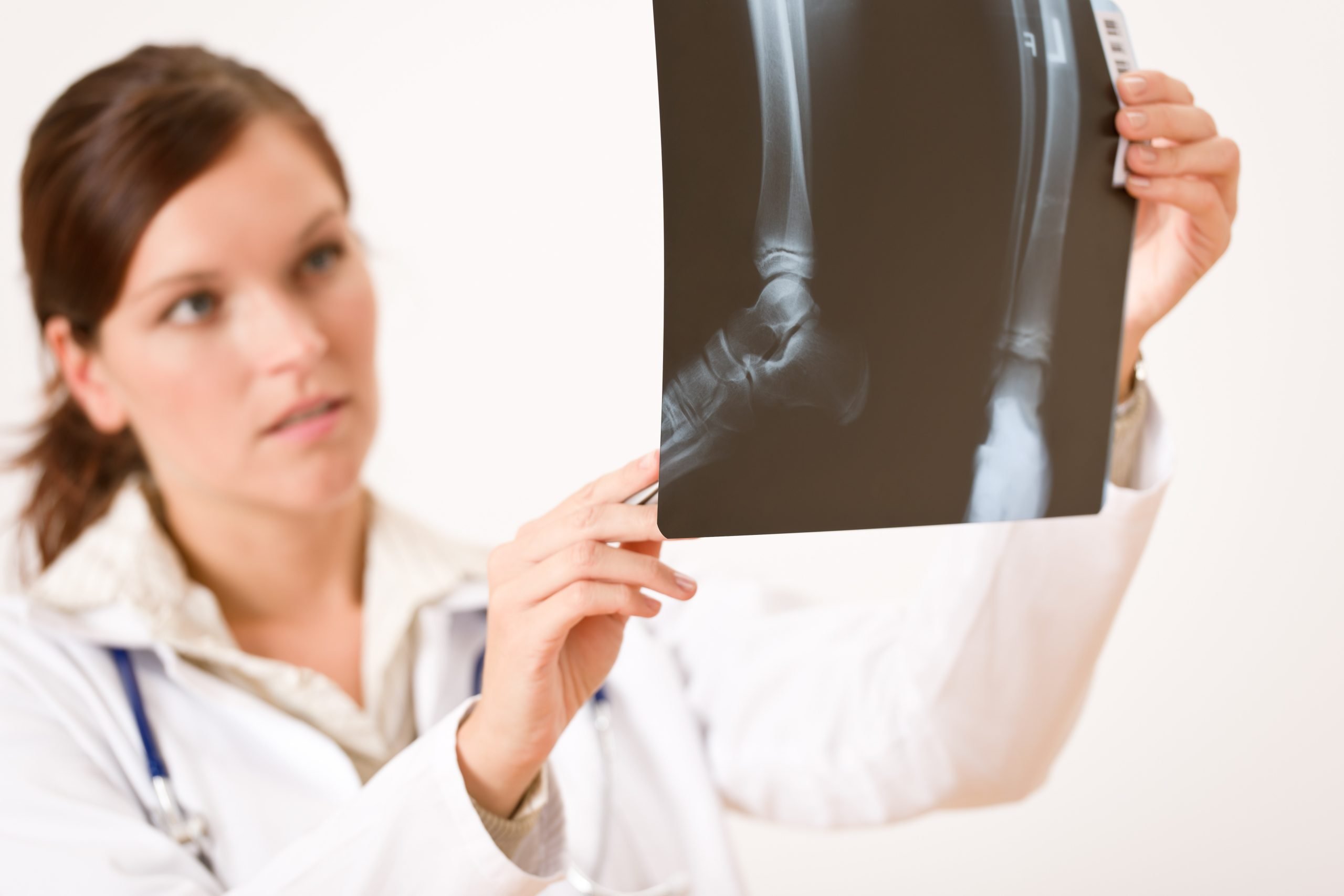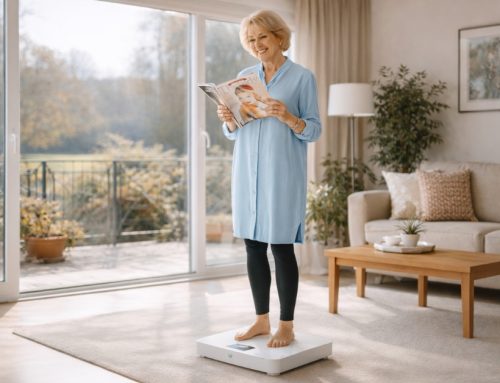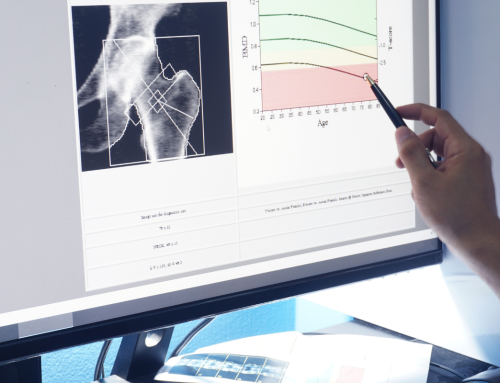
In the health and wellness world, we often hear numerous terms and abbreviations but may need help understanding them. One such abbreviation is BMD, which stands for Bone Mineral Density. This critical measure is essential for understanding bone health, preventing diseases, and maintaining overall well-being. In this blog, we will delve into the significance of BMD, why it matters, and how you can improve and maintain your bone health.
What is BMD Bone Mineral Density?
Bone Mineral Density (BMD) is a measurement that indicates the amount of minerals, primarily calcium, in a specific volume of bone. This measurement is a crucial indicator of bone strength and health. The higher the BMD, the denser and stronger the bones are. Conversely, a lower BMD signifies weaker bones, which are more susceptible to fractures and conditions like osteoporosis.
Why BMD Matters
Understanding your BMD is vital for several reasons:
- Diagnosis of Bone Diseases: BMD is the primary diagnostic tool for osteoporosis and other bone-related conditions. Osteoporosis is when bones become weak and brittle, increasing the risk of fractures.
- Fracture Risk Assessment: Low BMD can indicate a higher risk of fractures. Knowing your BMD can help predict your fracture risk and take preventive measures.
- Monitoring Bone Health: For individuals diagnosed with osteoporosis or other bone conditions, regular BMD measurements can help monitor the effectiveness of treatment and track changes in bone density over time.
Factors Affecting BMD
Several factors can influence BMD, including age, gender, genetics, lifestyle, and medical conditions. Understanding these factors can help you take proactive steps to maintain or improve your bone health.
Age and Gender
As we age, our bone density naturally decreases. This is particularly true for women, who are at a higher risk of developing osteoporosis post-menopause due to hormonal changes that affect bone density. Men also experience a decline in BMD as they age, but it tends to occur more gradually.
Genetics
Genetics plays a significant role in determining bone density. If you have a family history of osteoporosis or fractures, you may be at a higher risk and should consider getting your BMD tested.
Lifestyle Factors
Lifestyle choices can have a significant impact on BMD. Some key factors include:
- Diet: A diet rich in calcium and vitamin D is essential for maintaining strong bones. Dairy products, leafy greens, and fortified foods are excellent sources of these nutrients.
- Exercise: Weight-bearing and resistance exercises, such as walking, jogging, and lifting weights, can help improve and maintain bone density.
- Smoking and Alcohol: Smoking and excessive alcohol consumption can negatively affect bone health. Reducing or eliminating these habits can help improve BMD.
- Medical Conditions and Medications: Certain medical conditions, such as rheumatoid arthritis, hyperthyroidism, and chronic kidney disease, can impact bone density. Additionally, some medications, particularly long-term use of corticosteroids, can lead to decreased BMD. If you have any of these conditions or are taking medications that may affect your bones, it is crucial to monitor your BMD regularly.
Measuring BMD Bone Mineral Density
There are several methods for measuring BMD, with Dual-Energy X-ray Absorptiometry (DEXA) being the most common. This non-invasive test measures bone density in the hip and spine, providing a precise assessment of fracture risk and bone health.
Understanding BMD Results
BMD results are typically reported as T-scores and Z-scores:
- T-score: This compares your bone density to that of a healthy young adult of the same sex. A T-score of -1.0 or above is considered normal. Between -1.0 and -2.5 indicates low bone mass (osteopenia), and -2.5 or below signifies osteoporosis.
- Z-score: This compares your bone density to what is expected for someone of your age, sex, weight, and ethnic or racial origin. A Z-score below -2.0 may suggest that something other than aging is causing abnormal bone loss.
Improving and Maintaining BMD
Maintaining or improving BMD involves a combination of lifestyle changes, dietary adjustments, and, in some cases, medication.
Nutrition for Strong Bones
A balanced diet rich in calcium and vitamin D is essential for bone health. Some tips to ensure adequate intake include:
- Calcium: Adults should aim for 1,000-1,200 mg of calcium daily. Good sources include dairy products, fortified plant-based milk, leafy green vegetables, and tofu.
- Vitamin D: Vitamin D helps the body absorb calcium. Aim for 600-800 IU daily, which can be obtained from sunlight exposure, fatty fish, fortified foods, and supplements if necessary.
Exercise and Physical Activity
Regular exercise is crucial for maintaining strong bones. Weight-bearing exercises like walking, running, and dancing help stimulate bone formation. Resistance training, such as weightlifting, also helps improve bone density by putting stress on the bones, encouraging them to become stronger.
Lifestyle Modifications
Two of the best things you can do for your bone health are to quit smoking and reduce alcohol consumption. Smoking reduces blood flow to the bones, which can decrease bone density. Excessive alcohol consumption can interfere with the balance of calcium and vitamin D in the body, negatively affecting bone health. These lifestyle modifications go beyond boosting bone health and can positively impact other areas of health, too.
Medications and Supplements
Medications may sometimes be necessary to improve BMD and prevent fractures. These can include bisphosphonates, hormone replacement therapy (HRT), and other osteoporosis-specific treatments. Consult your healthcare provider for recommendations tailored to your needs.
Understanding and maintaining BMD bone mineral density is crucial for overall health and well-being. You can improve and maintain your bone health by making informed lifestyle choices, ensuring a nutrient-rich diet, and staying physically active. For those seeking additional support, innovative technologies like the Marodyne LiV device offer a safe, patent-pending, scientifically established solution to naturally enhance muscle strength, function, and circulation, thereby supporting and improving BMD. Investing in such a device can be a proactive step towards better bone health and a higher quality of life.
Take a proactive approach to your BMD bone mineral density and contact Marodyne LiV to learn more about the health-enhancing device.
Did you know about the factors that contribute to bone mineral density? What lifestyle changes would you make to improve your BMD? Share your thoughts with our readers in the comments below.




 Black Friday → Christmas Sale! Save $300 + Free Shipping
Black Friday → Christmas Sale! Save $300 + Free Shipping 